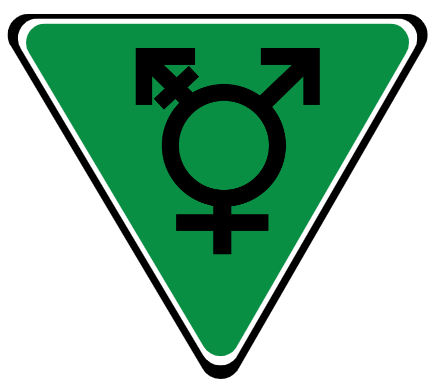 Gender reassignment is made when an individual feels that his or her gender at birth does not match their gender identity. This is called ‘gender dysphoria’ and is a recognised medical condition.
Gender reassignment is made when an individual feels that his or her gender at birth does not match their gender identity. This is called ‘gender dysphoria’ and is a recognised medical condition.
Diversity, equity & inclusion: gender reassignment
Transgender or trans person
A person whose gender identity does not conform to the sex they were assigned at birth. These are inclusive, umbrella terms, including people who describe themselves as transsexual, cross dressing people and people who have a more complex sense of their own gender than either 100% female or 100% male.
Gender identity
A person’s deeply felt internal and individual experience of gender, which may or may not correspond to the sex assigned to them at birth.
Gender expression
A person’s external gender-related behaviour and appearance, including clothing.
Gender binary
The classification of sex and gender into two distinct and disconnected ‘opposite’ forms of masculine and feminine.
Gender variance
Gender expression that does not match society’s norms of female and male.
Non-binary person
A person who does not identify as solely male or female. They may identify as both, neither or something entirely different.
Gender fluid
Having a gender identity which varies over time.
Transsexual person
Legal/medical term for someone who lives (or wishes to live) permanently in the ‘opposite’ gender to that assigned at birth.
Gender dysphoria
Medical term for deep-rooted and serious discomfort or distress because of a mismatch between a person’s biological sex and gender identity; overwhelming desire to live in a different gender to that assigned at birth.
Gender reassignment
The process of transitioning from the gender assigned at birth to the correct gender. This may (or may not) involve medical and surgical procedures.
Legal sex
The sex recorded on your birth certificate. Rarely relevant at work. Currently binary in the UK. Changed by applying to Gender Recognition Panel.
Gender recognition certificate
Issued by the Gender Recognition Panel – signifies full legal rights in acquired gender and allows the issuing of a replacement birth certificate.

The history of transgender rights in the UK
All About Law
The battle over gender rights and identity has taken on huge significance in the past few years. But our understanding of transgender issues has a long and complex history, which is helping shape the present legal landscape.
The U.K. Government has responded on gender recognition for trans people. LGBT groups say it is 'Lackluster'
Time
The U.K. government published its response to a public debate over the Gender Recognition Act (GRA), prompting mixed reactions from LGBT and trans-inclusive charities. The GRA has been at the centre of headlines—and consternation—since a public consultation to potentially broaden the GRA’s mandate opened in England and Wales in 2018.
Cost of changing legal gender reduced to £5
Evening Standard
The fee to apply for a gender recognition certificate has been reduced to £5 the Government has confirmed.
The £140 fee for how a person changes their legal gender will be reduced to single figures to ensure the process is more affordable for transgender people, following a pledge by the equalities minister.

The V&A LGBTQ working group
The V&A
The Museum’s LGBTQ working group unearths previously hidden or unknown LGBTQ histories in the collections and aims to facilitate understanding of LGBTQ identities and histories through research, events, discussion and debate.
Zurich sees leap in women applying for senior roles after offering all jobs as flexible
Zurich
Rise in women applying for top jobs follows drive to advertise every possible role with flexible terms and gender-neutral language.

What it's like to be intersex
AS/IS
Five young people discuss their experiences being intersex.
What's happening to the trans community in the UK? Jameela Jamil's discussion with trans activists
Jameela Jamil
In light of parliament pulling back on necessary GRA reforms which would allow trans individuals to self-identify, Jameela met (virtually) with Travis Alabanza, Shon Faye, HRH Princess Kuchenga, and Nim Ralph for a panel discussion to talk about experiences of being transgender in the UK.
Transgender people in Britain explain why transphobia is on the rise in the U.K.
Washington Post
The Washington Post’s Hannah Jewell spoke to Juno Dawson, Freddy McConnell and Azekel Axelle about how the British media and government have fueled rising transphobia.
Being trans in Britain today
Gender GP
Dr Helen Webberley and Marianne Oakes explore some of the myths around gender variance by addressing some frequently asked questions received via GenderGP.

Being transgender
Amnesty International
From the much loved series My Transexual Summer, with Fox Fisher and others, to Kellie Maloney’s successful stint on Celebrity Big Brother to Laverne Cox’s starring role in Orange is the New Black — the past few years have seen awareness of transgender identity soar.
Now, with more Britons than ever seeking gender identity treatment, this latest podcast series explores what it means to be transgender or non-binary in the UK today.
What the trans!?: the transgender news pod
The What The Trans Group
Michelle and Ashleigh host the What the Trans!? Podcast, discussing UK trans news, events, pop culture and how being trans is better than being anything else.


)
)
)
)
)
)
)
)
)
)
)
)
)
)
)
)
)
)
)
)
)
)
)
)
)
)
)
)
)
)
)
)
)
)
)
)
)
)
)
)
)
)
)
)
)
)
)
)
)
)
)

)